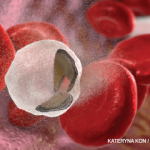Dr. Alan C. Moss, of Harvard Medical School and Beth Israel Deaconess Medical Center, Boston, told Reuters Health by email, “It is of interest that disease activity and quality of life did not differ between type of iron, as older studies reported worsening symptoms with (oral) iron in patients with Crohn’s disease. This may have represented a response to alterations in the microbiome, not inflammation.”
He added, “The microbial and metabolomics data should be considered exploratory, given the small sample size. The noted reductions in Faecalibacterium prausnitzii on (oral) iron did not seem to translate to clinically meaningful differences in disease activity in the short term, which is reassuring.” Dr. Moss also noted that the similar effects of intravenous and oral iron are consistent with previous studies.
The authors reported no funding or disclosures.



